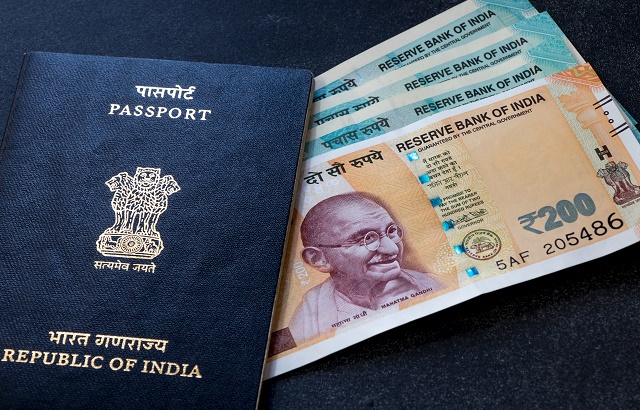Portfolio managers as well as non-resident Indians (NRIs) in the UAE pin big hopes on tax incentives in the forthcoming budget, to be presented on 1 February 2020.
Portfolio managers are betting on favourable proposals that will prompt NRIs to invest more in the country.
The merger of the NRI-portfolio Investment Scheme (PIS) with the Foreign Portfolio Investment was proposed to provide the NRIs with seamless access to Indian equities.
Though most NRIs are not in the Indian tax net, a good lot of them are required to pay tax on the incomes they earn in India by way of rent on housing and commercial property, dividend income, short and long term capital gains on equity and property sales professional service charges.
NRIs are looking for some tax relief on their investments in real estate, stocks and bonds.
A few also hope the government to announce relaxation in baggage rules that will allow tax-free import of gold.
As per the existing baggage rules, a lady passenger can carry 50 grams of gold or gold worth INR100,000, ($1,403; £1,078; €1,275) and a male passenger 25 grams of gold worth INR50,000 ($706; £539; €637) duty-free.
NRIs expect the government to continue with its tax reforms in the forthcoming budget also. They are hopeful that the income tax slab rate, long term capital gains tax and dividend distribution tax rate will be revised.
Top in the list is income tax slab and limit. They demand an increase in the income tax exemption limit from INR 250,000 ($3,507; £2,696; €3,189) to INR500,000 ($7,015; £5,392; €6,378).
“This change in the income tax slab was also proposed last year, but not implemented. This year, they expect an increase in the income tax exemption limit or a cut in the income tax rate, which will spur savings,” said Benoy Sasi, international lawyer at DIFC Courts, Dubai.
In the previous budgets, a tax of 10% was introduced on gains arising from the transfer of listed equity shares exceeding INR100,000 without any indexation benefit.
Now, NRIs want the government to scrap LTCG tax or extend the holding period for investments from the current one year which will help in boosting the investments in the economy.
At present, investors have to pay 10% income tax on dividends exceeding INR 1 million ($14,030; £10,784; €12,756) per annum by way of Dividend Distribution Tax. NRIs demand abolition of this tax as the tax is levied at multiple levels.
Dividend Distribution Tax (DDT) is the tax levied on dividends distributed by the companies from its profits, though this profit gets already taxed before dividend distribution.
“If abolished, it will result in high investments in profit-making companies and higher distribution of dividends,” said Benoy Sasi.
Another category of investors
Meanwhile, the capital market regulator Securities and Exchange Board of India (Sebi) is planning to create a third category of investors under the foreign portfolio investment (FPI) system for NRIs to invest in Indian markets. The move will increase the involvement of NRIs in local markets.
The regulator is also planning to do away with licensing fees for NRIs registering as FPIs, which could be $2,000-5,000. NRIs will soon be allowed to come in through custodian banks. This is possible as the government is planning to merge the existing NRI route with the FPI system.
“These measures will provide a more favourable regulatory setting to FPIS, especially NRIs. This move will also open up the Indian markets for the participation of NRI-dominated funds. Current rules say an FPI cannot be majority-owned or controlled by NRIs, due to which, NRIs put together cannot hold more than 49% in an FPI,” said R Ramesh, chief executive officer, Veracity Consulting FZE.
After the merger of the two routes, NRIs will be able to invest up to the maximum FPI limit in a company, which in most sectors is 100%. The move will also open up the local markets for the participation of NRI-dominated funds.
Currently, NRIs invest in India through the portfolio investment scheme (PIS) route, which is controlled by the Reserve Bank of India (RBI). As per the rule, NRIs are allowed to invest only 5% in a listed company.
This PIS route will continue to exist for NRIs make non-market investments including fixed deposits (FDs) and recurring deposits (RDs).
In fact, non-repatriable funds can come through FPI regime. This would make it easier for NRIs to allocate funds and redeem investments as the FPI framework can work through a pooled fund just like a net asset value-linked structure.








